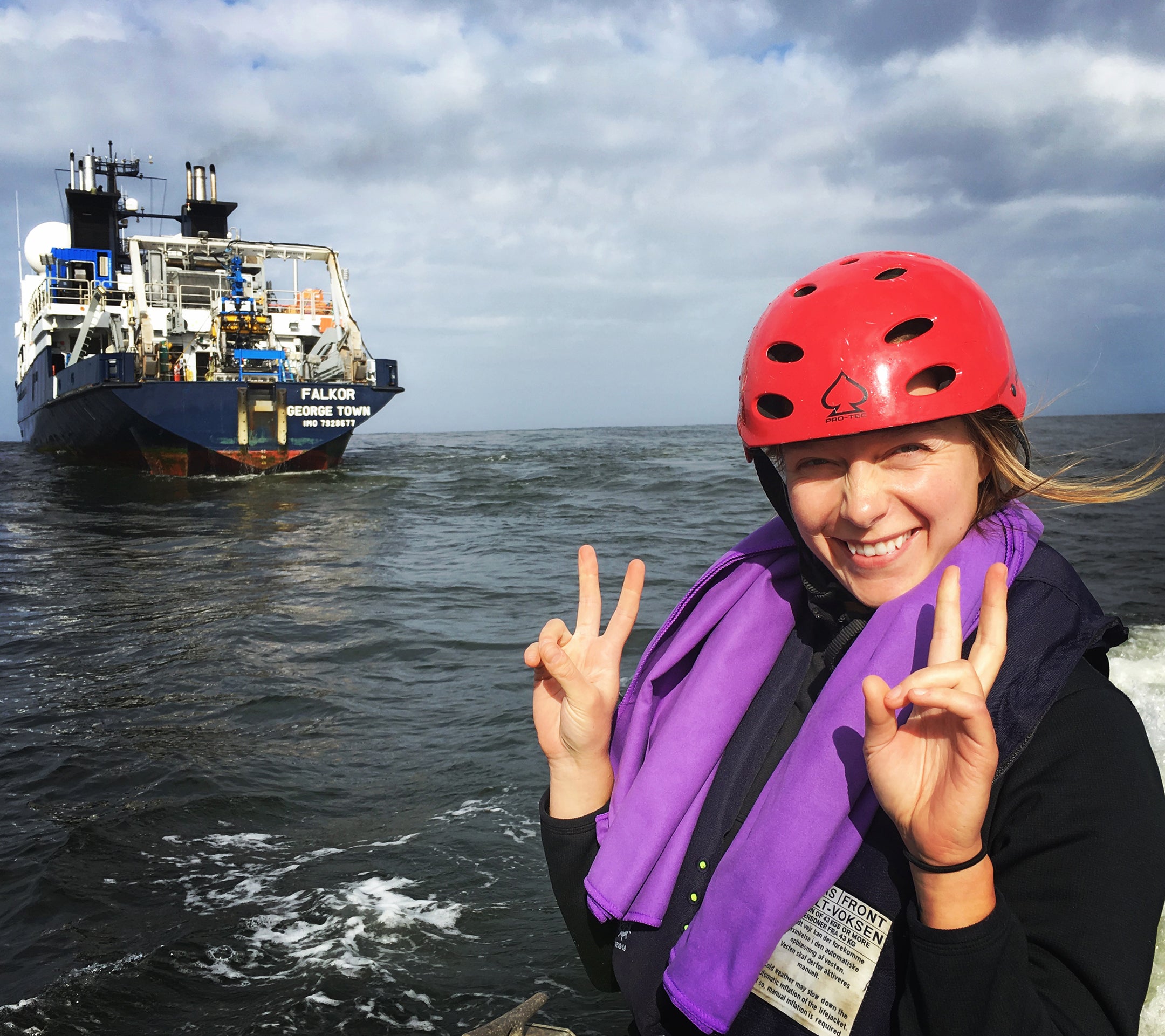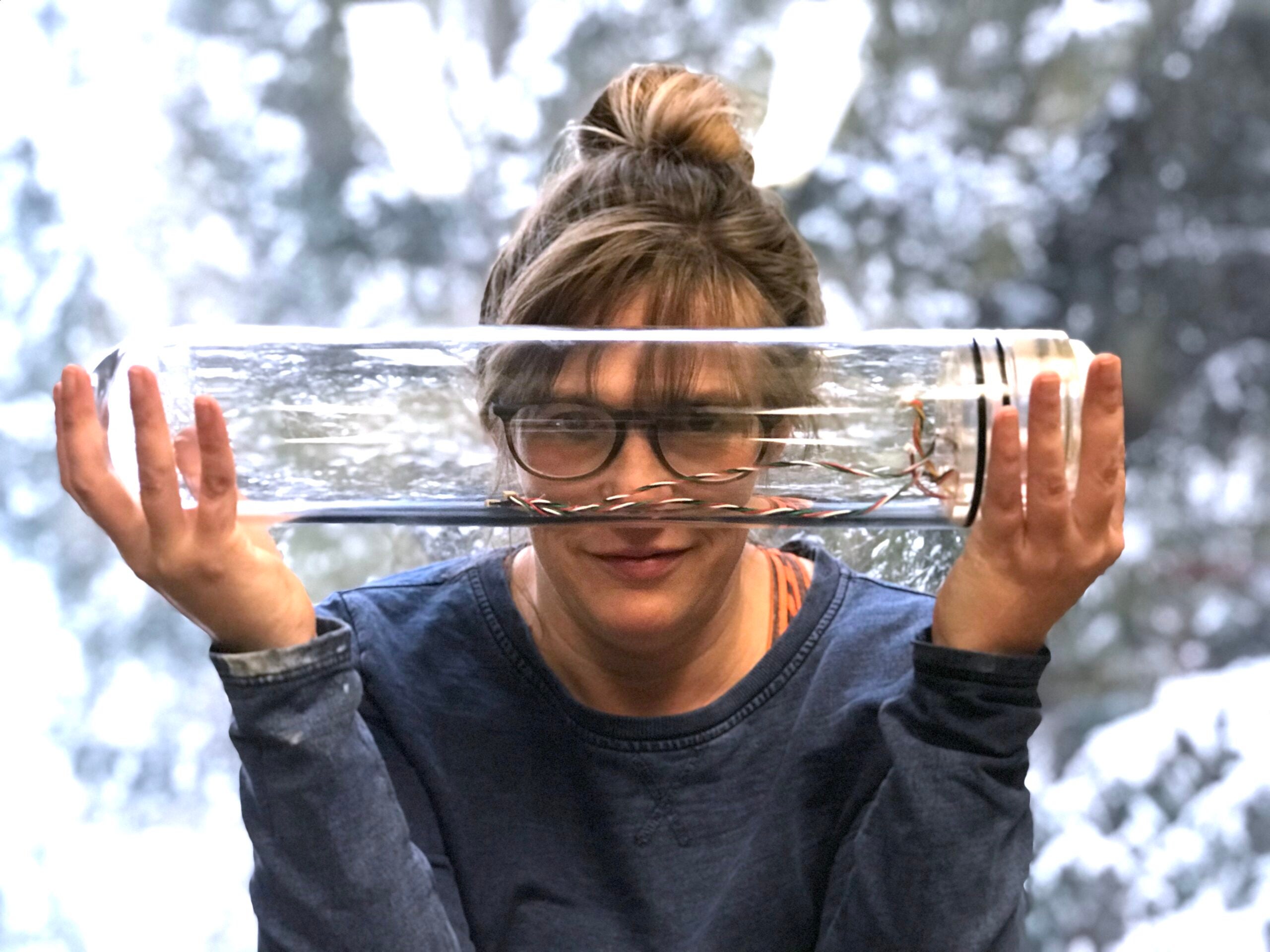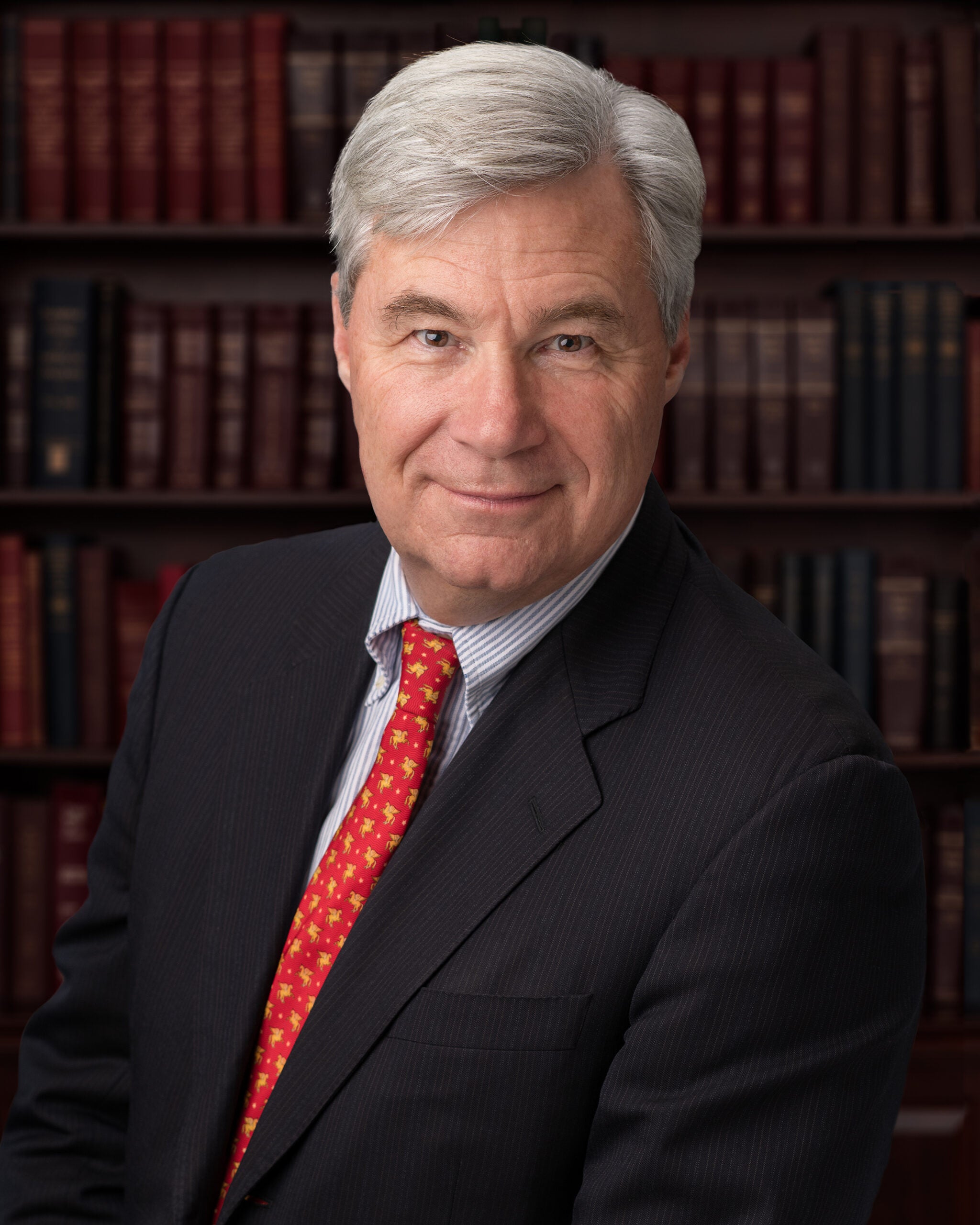KINGSTON, R.I. – March 12, 2021 – The evidence of global climate change is all around us—in the shrinking glaciers and melting polar ice, the dramatic shifting of plant and animal ranges, the warming of oceans and the growing number of extreme weather events. The vast majority of climate scientists agree that warming trends are extremely likely due to human activities, and that global temperatures will continue to rise for decades due to greenhouse gases.
So, what can we do? How do we process all this information? How do we act?
To answer some of those questions, the University of Rhode Island is presenting “TEDxURI 2021: Decoding the Language of Climate,” bringing together nearly a dozen experts from numerous disciplines to provide a panorama of powerful stories and perspectives on climate change. The two-night event will be live streamed March 20 and April 3 at 7:30 p.m. To take part in the free, public events, register at the TEDxURI website.
U.S. Sen. Sheldon Whitehouse, a member of the Senate’s Environment and Public Works Committee and staunch advocate of policies to address climate change, will open the discussion on the first night. For nearly nine years, Whitehouse took to the Senate floor each week the chamber was in session to give a “Wake Up” call on the crisis.

“I want to thank the University of Rhode Island for making this annual TEDx about climate change,” said Whitehouse. “It’s a good year for this to be the topic because we have big plans for getting a lot done on climate in Congress, and I hope we can bring those plans to fruition. URI has been immensely valuable in dealing with climate change, and I really want to thank the University for the work they’ve done.”
This is the third year that the URI College of Business has hosted TEDxURI, a program of local, independently organized events launched by the nonprofit organization TED in 2009.
The 10 speakers, including seven URI faculty members, over the two nights will provide a multidisciplinary look at the climate crisis in their 7- to 10-minute presentations. The stories will entertain, inform, and inspire, with topics ranging from the health concerns caused by climate change, to restructuring society to be more resilient, to unlocking the resources of wastewater, to how our overflowing wardrobes are choking the environment, to the artists’ role in addressing environmental changes.

It might be hyperbole to say climate change is the largest threat facing the world at a time when the COVID-19 pandemic has killed more than 2.5 million people worldwide and more than 525,000 in the U.S. But Jason Jaacks, assistant professor of journalism at URI, feels that sense of urgency.
“Climate change is the biggest single threat to humanity,” he said. “Our exploitation of ecosystems is very likely what caused COVID-19 to jump to humans. To understand the threats facing us and, more importantly to be inspired to change ourselves, we have to have discussions like this.”
On TEDxURI’s opening night, Jaacks, an award-winning filmmaker, will discuss the power of visual storytelling to make a difference and of his journey to telling stories about people, places and creatures from above and below the surface.
“I believe people will learn that there is much more to climate change than polar bears and doom and gloom,” said Jaacks, whose work has been featured on National Geographic, PBS Digital Studios, The New York Times, and The Atlantic. “There are amazing individuals and teams of people all around the world who are choosing to take on this challenge, not wilt in the face of it. I hope to be one of those people, and I hope the stories I share will inspire others to do the same.”
During his career, Dr. Nitin Damle, a clinical associate professor of medicine at the Alpert Medical School at Brown University and a past president of the American College of Physicians, has seen a different side of the crisis—its effects on human health. He will share stories about four patients who have experienced those health consequences.
The incidences of illnesses caused by climate change, such as tick-borne and water- and food-borne illnesses, along with asthma and lung conditions, are rapidly increasing, said Damle, who is speaking at his 35th climate event in the last five years.
“If we do not act now to move to 100% clean energy by midcentury, we will see dire consequences,” he said, “and it is not hyperbolic to say an uninhabitable planet.”
Emily Diamond, an assistant professor of environmental communication, echoes his words.
“Action on climate change is more urgent today than ever before,” she said. “We are approaching a series of tipping points around the world, and if urgent action is not taken to reduce greenhouse gas emissions, we risk insupportable changes to ecosystems and our way of life in the next century.”
In her talk, Diamond will explore a possible answer to the political divide in the U.S. over climate change: getting people to look at climate change outside of their political affiliation. “Climate change is a multifaceted issue that will affect many different parts of people’s lives,” she said. “If we can use communication strategies to get people to consider the issue through the lens of their identity as a parent, a farmer, a birdwatcher, instead of their partisan identity, then we may be able to achieve greater bipartisan support for climate change policies.”
“TEDxURI: Decoding the Language of Climate” will allow participants to see the approaches URI faculty and others are taking to encourage individuals and policymakers to take urgent action, Diamond said.
Also, it is important for people to discuss climate change to foster an appreciation of science that could help motivate change, said Veronique Oldman, an assistant professor oceanography.
In her talk, Oldham will examine the evolution of oxygen on Earth and the subsequent deoxygenation of our oceans as a result of man-made fertilizers, focusing on two areas importance to the U.S. fishing industry, the Gulf of Mexico and Narragansett Bay. “Deoxygenation would have dire repercussions on that industry,” she said. “Using scientific innovation, we can change this phenomenon.”
“I think climate change is the most solvable issue in our lifetime,” she added. “If there were support for science and innovation, we would get there within my lifetime.”
Along with Jaacks and Diamond, the speakers for the March 20 event will be:
Melissa Omand, an assistant professor in URI’s Graduate School of Oceanography, will examine ocean’s role in the global carbon cycle. Her research explores the organic particles produced after algae blooms at the surface by releasing small, pressure-resistant robots. “The robots’ upward-looking cameras take photos of the accumulation of these sinking particles and allow us to quantify the amount, spatial distribution and organismal origins of the carbon,” she said. “This matters because this vertical transfer—called ‘the biological carbon pump’—is huge, and we don’t understand how the process will respond to a changing climate.”
Martin Bide, URI professor of textiles, fashion merchandising and design, will discuss how the glut of discarded clothing is hurting the environment. The average consumer throws away 70 pounds of clothing a year. “The advent of cheap textiles means that our wardrobes are overflowing,” he said. “Those clothes use global resources to make and their disposal creates a waste stream that is hard to deal with.”
Jan Sendzimir, a systems ecologist who has worked around the globe to help local communities and nations tackle the unpredictable changes arising from the extremes of climate warming, will discuss how we can restructure society to become carbon neutral, a massive undertaking.
“Currently society is not learning fast enough to get ahead of the rising tide of climate-related impacts. The truth is no one knows the answer to climate change … but we fail to learn because we pretend to know when we do not,” he said. “The key to unlocking our power to learn comes from the humility to admit we do not know and explore with an open mind. Both science and Zen offer keys to such open, humble exploration.”
Along with Damle and Oldham, the speakers on April 3 will be:
Caleb Hawkins, a master’s student at the Harvard Graduate School of Design, will discuss how, like scientists, engineers, and policymakers, artists have a role in the discussion by acting as a means of translation for what nature has to say.
“The total complexity of climate change can be hard to understand with all of its different interconnected variables,” he said. “Art and design research can unify many different layers and variables of climate change into a shared experience for the public.… The creation of art, which is inspired by climate change, can help us expand our perceptions of how things may be interconnected and inspire positive change through communication.”
Vinka Oyenedal-Craver, professor of civil and environmental engineering and head of URI’s Water for the World lab, will discuss energy consumption for wastewater treatment and how wastewater can be used as a resource. “We use large amounts of energy and produce large amounts of GHG (greenhouse gases) to treat wastewater, but wastewater has ‘hidden’ energy and resources,” she said. “We cannot afford to waste materials and energy.”
Rebecca Millsop, a URI lecturer in ethics and co-founder of the organization Philosophers for Sustainability, will discuss how philosophy can provide the tools to combat the climate crisis in their everyday lives. “It’s important to acknowledge how overwhelming this crisis is and how we can often feel a sense of helplessness in the face of it,” she said. “To combat this, I’ll offer suggestions on how to work past the helplessness to take action from where we are and work together to promote and expect larger change.”
Along with the speakers, TEDxURI will feature artists and musicians, including the Rhode Island Children’s Chorus; 11-year-old pianist, composer and violinist Ian Lin, the youngest member of the Rhode Island Philharmonic Youth Symphony Orchestra; child prodigy Amy Goto, who has been playing cello since age 3; and Ryan Campos, who will present a performance combining synthesizers and 8mm projections.
About TEDxURI
TEDxURI brings big ideas to the world stage through the inspirational voices of our community and beyond. Our speakers challenge us to think bigger than ourselves, participate in shaping the future, and do our part in protecting the planet. Our mission is to honor these ideas, and share powerful stories of imagination, innovation, and integrity that will inspire others to Think Big. TEDxURI is coordinated through the URI College of Business and is planned by team members from across the University.
About TEDx, x = independently organized event
In the spirit of ideas worth spreading, TEDx is a program of local, self-organized events that bring people together to share a TED-like experience. At a TEDx event, TED Talks video and live speakers combine to spark deep discussion and connection. These local, self-organized events are branded TEDx, where x = independently organized TED event. The TED Conference provides general guidance for the TEDx program, but individual TEDx events are self-organized. (Subject to certain rules and regulations.)
About TED
TED is a nonprofit organization devoted to Ideas Worth Spreading, often in the form of short talks delivered by leading thinkers and doers. Many of these talks are given at TED conferences, intimate TED Salons and thousands of independently organized TEDx events around the world. Videos of these talks are made available, free, on TED.com and other platforms. Audio versions of TED Talks are published to TED Talks Daily, available on all podcast platforms.
TED’s open and free initiatives for spreading ideas include TED.com, where new TED Talk videos are posted daily; TEDx, which licenses thousands of individuals and groups to host local, self-organized TED-style events around the world; the TED Fellows program, which selects innovators from around the globe to amplify the impact of their remarkable projects and activities; The Audacious Project, which surfaces and funds critical ideas that have the potential to impact millions of lives; TED Translators, which crowdsources the subtitling of TED Talks so that big ideas can spread across languages and borders; and the educational initiative TED-Ed. TED also offers TED@Work, a program that reimagines TED Talks for workplace learning. TED also has a growing library of original podcasts, including The TED Interview with Chris Anderson, WorkLife with Adam Grant, Pindrop and TEDxSHORTS.
Follow TED on Twitter, Facebook, Instagram and on LinkedIn.

